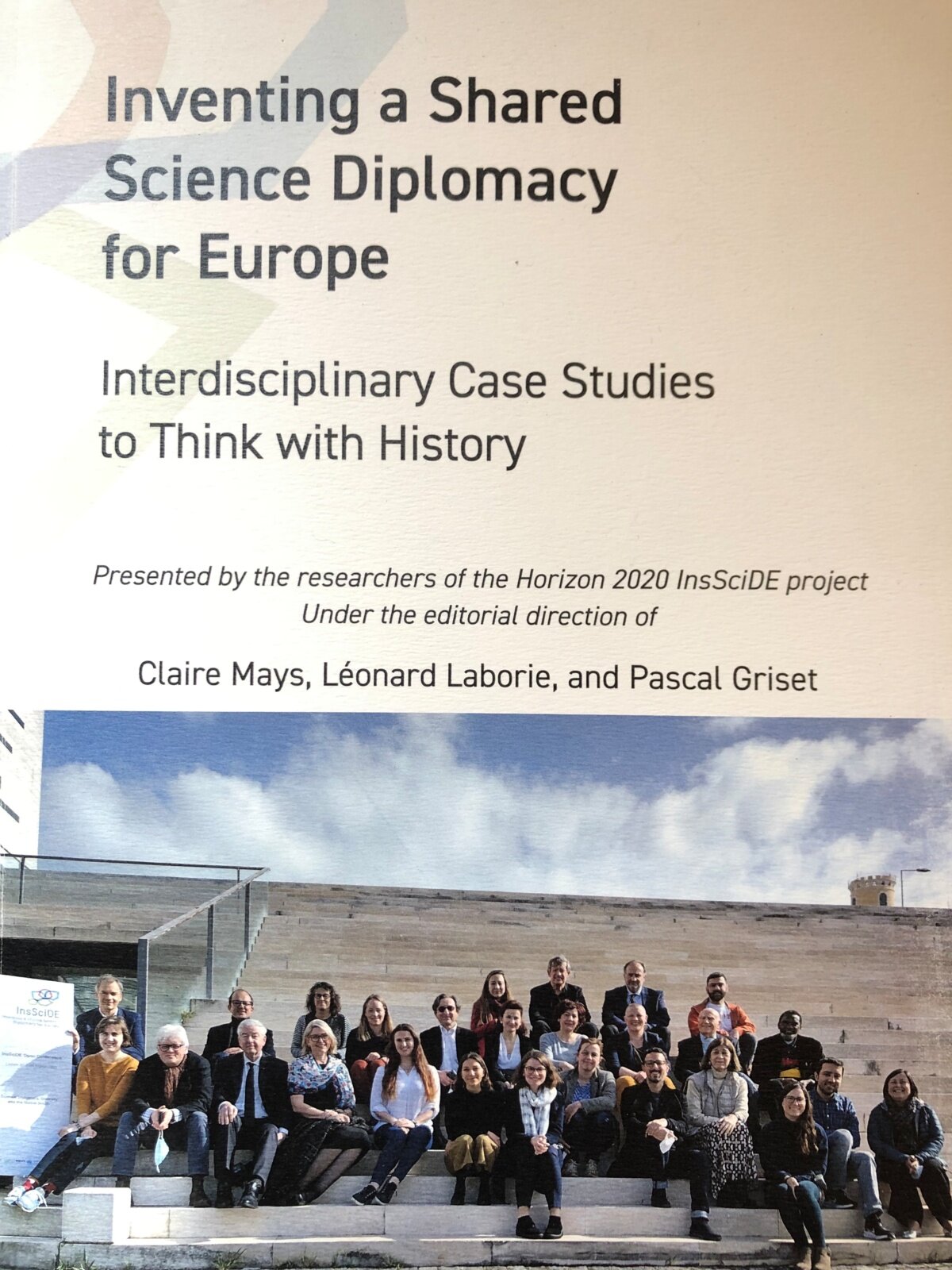Inventing a shared science diplomacy for Europe: Interdisciplinary case studies to think with history
- Autoria
Mays, Claire, Laborie, Léonard, & Griset, Pascal (eds) — com contribuições de Maria Paula Diogo, Ana Simões, Daniel Gamito-Marques e Paula Urze.
- Edição
- Zenodo
- Ano
- 2022

Publicação com os outputs do projecto InsSciDE — que conta com contribuições de Maria Paula Diogo, Ana Simões, Daniel Gamito-Marques e Paula Urze.
The H2020 InsSciDE project created a community of historians and archaeologists, science-technology-society scholars, political scientists, and communication and training specialists. Together we have illuminated how science diplomacy has taken shape and played out and could develop in Europe. Our case studies range across 250 years, several continents, and five thematic areas: heritage, health, security, environment and space. InsSciDE also looked at two cross-cutting themes: Power with science diplomacy, and the identities and practices of science diplomats themselves.
Our interdisciplinary collection of more than two dozen cases shows how science diplomacy springs from different sources. It is planned or unplanned, and sometimes perceptible only when looking back to track the processes and events set into motion by a dense multilevel field of competing desires and demands. Science diplomacy sometimes grew from the curiosity and ambition of scientist-explorers, or from pragmatic acts of managing transborder crisis. It emerged when actors at a diversity of levels each angled across time for a role and the power to foster scientific, national, or common-good objectives. We show how science diplomacy can happen without planning, and how it is sometimes the context and the product of great struggles: to define futures in the image of sociotechnical imaginaries; to rise in scientific and technological competence; to compete for primacy in innovation; to establish dominion, symbolic or territorial; to subvert and reconfigure geopolitical order; to defeat neocolonialism and restore voice to a range of actors, human and non-human. We show how infrastructure such as data systems, or how social media, or how other diplomatic objects such as a research nuclear reactor or a space vehicle are enlisted, with or without success, to channel influence.
(From the introduction by Claire Mays, Inventing a shared science diplomacy for Europe: Twenty-eight historical cases, a thousand ideas)